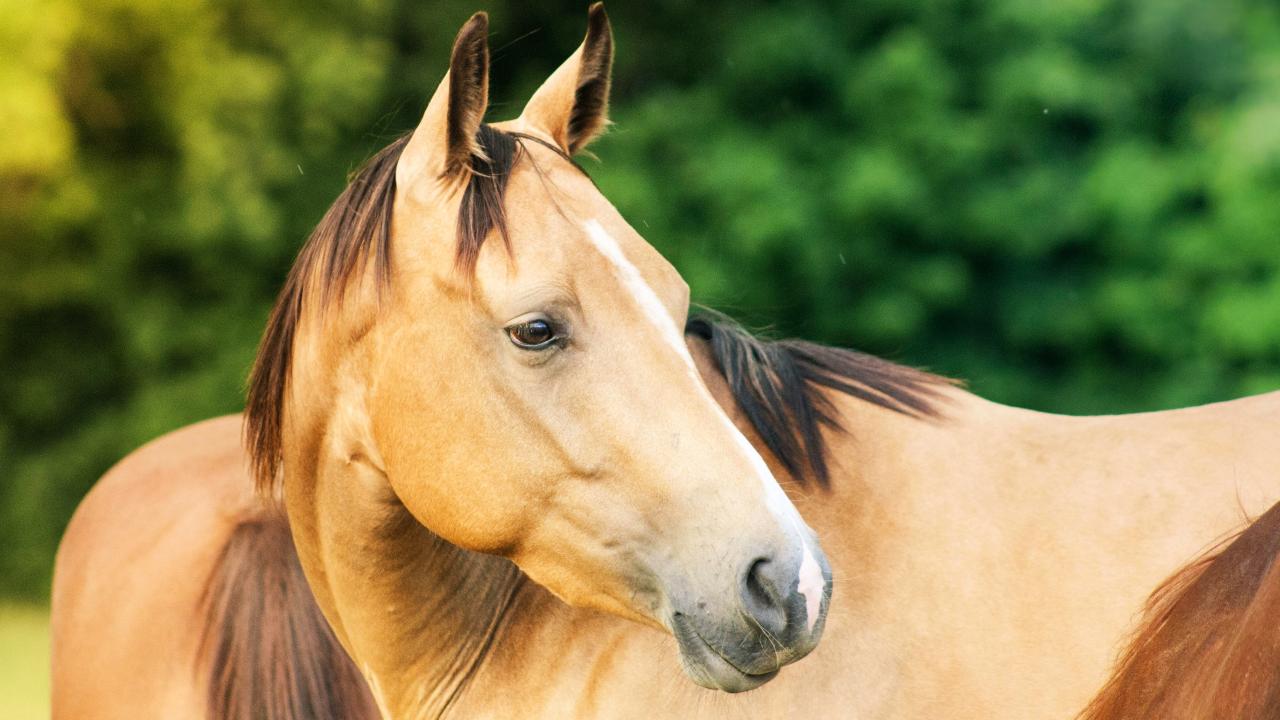
Mutation Associated with Malignant Hyperthermia (MH) Found to be at Low Frequency but Clinically Significant in Quarter Horse Populations
A new study led by VGL director, Dr. Rebecca Bellone, in collaboration with UC Davis Professor, Dr. Monica Aleman, and University of Minnesota Professor, Dr. Molly McCue, determined that the genetic variant causing malignant hyperthermia (MH) is at a low frequency in Quarter Horses and related breeds, and horses homozygous for the mutation remain undetected.
Malignant hyperthermia is a heritable condition caused by a single change in the DNA sequence of the RYR1 gene, and is reported as the "MH" allele by the VGL. This genetic variant (MH) causes dangerously high spikes in body temperature and muscle break down in response to anesthesia or stress, and can be fatal.
In evaluating the DNA of over 159,000 horses from 16 different breeds, the largest study to date to investigate MH, the researchers discovered that MH only appeared in Quarter Horses, Paints, and Appaloosas. No cases were found in any other breeds. The study also determined that the mutation is rare, with an allele frequency of 0.0013, meaning approximately one in 1000 Quarter horses will have the mutation. Despite being rare, it carries serious risks.
The study also looked at horses with known muscle diseases tested at the UC Davis Neuromuscular Disease Laboratory and found that over half of those carrying the MH allele had died, especially after exposure to anesthesia or stressful situations like illness or breeding. Most of the fatal cases were in young males. However, not all horses with the mutation become sick.
Dr. Aleman, Dr. Terry Holliday Equine and Comparative Neurology Presidential Endowed Chair at UC Davis and co-author of the study, noted
Perhaps most importantly, no horses were found to have two copies of the MH allele (homozygous), suggesting that two copies may possibly be lethal even before birth. Given the low frequency in the population, we will need to test more horses to know for sure if homozygosity is lethal. Regardless, knowing genotypes of potential mating pairs is important to avoid producing affected horses”
The findings further highlight the importance of genetic testing in Quarter Horses and related breeds before giving anesthesia as one copy of the MH mutation can lead to life-threatening reactions.
The full publication can be found in the Journal of Veterinary Internal Medicine.
Information about testing for malignant hyperthermia can be found on the VGL website.
